Lemon Drop
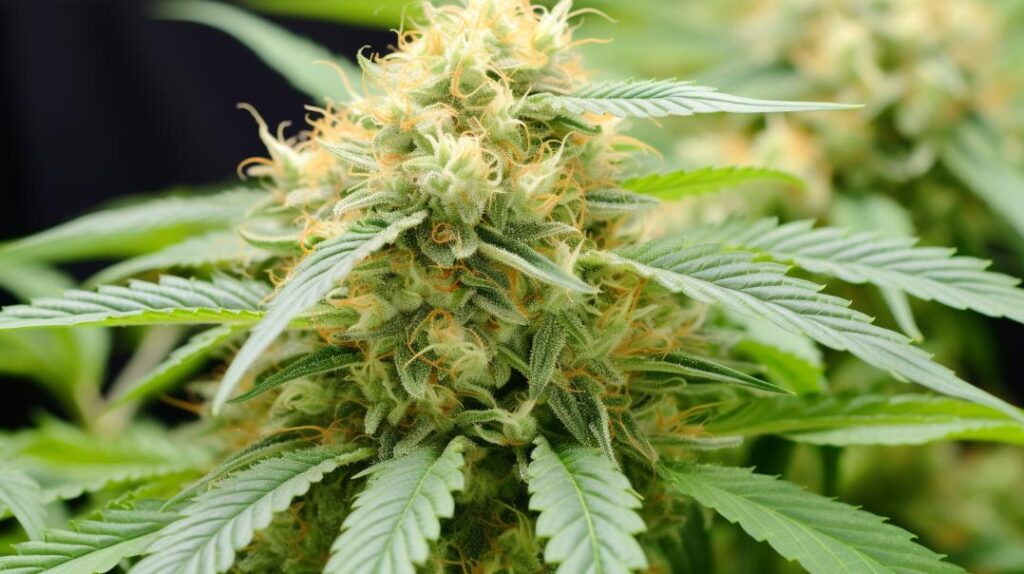
The Lemon Drop weed strain, a sativa-dominant hybrid, has garnered attention in the cannabis community for its distinctive citrus aroma and potential therapeutic benefits. Characterized by its sharp lemon scent and a flavor profile that mirrors its name, this strain boasts a genetic lineage that contributes to its reputed invigorating and uplifting effects.
With a higher-than-average THC content, Lemon Drop is often discussed in the context of its suitability for seasoned consumers seeking a zestful mental clarity and an energy boost. While its popularity among creative and analytical minds is noteworthy, the strain’s impact on individuals with varying tolerances and its potential medical applications warrant a nuanced exploration.
As we examine the intricacies of Lemon Drop’s terpene profile, effects, and usage recommendations, one must consider the balance between its stimulating properties and the caution advised for those sensitive to its potency.
Genetic Lineage
Shrouded in mystery, the genetic lineage of the Lemon Drop weed strain remains undisclosed, though it is widely speculated to be a sativa-dominant hybrid resulting from a cross between Lemon Kush and GSC, which imparts its complex terpene profile and distinctive zesty lemon fragrance.
The enigmatic origins of Lemon Drop contribute to its allure within cannabis connoisseur circles, as the precise genetic blueprint is a closely guarded secret by the cultivator. This strategic obscurity often serves to heighten interest and maintain a unique market position.
The theorized parentage suggests a sophisticated amalgamation of the invigorating Lemon Kush, known for its energizing effects and citrus-heavy aroma, with the renowned GSC (formerly Girl Scout Cookies), which offers a euphoric high and a multifaceted flavor profile. The resulting hybrid, Lemon Drop, is believed to inherit these traits, synthesizing them into an aromatic and flavorful experience underscored by a tangy and sweet taste, with undertones of fuel and berries.
Moreover, the strain’s visual presentation, characterized by well-cultivated buds adorned with frosty white trichomes and a mélange of green and purple hues, adds to the sensory appeal and reinforces the quality suggested by its genetic lineage.
THC/CBD Content
Boasting a THC content of 18% and a CBD ratio of 18:1, the Lemon Drop strain presents a potent psychoactive profile that is favored for its stimulating and mood-enhancing effects. As a sativa dominant variety, Lemon Drop’s elevated THC level is typical of strains that deliver a cerebral high characterized by creativity and energy. This makes it particularly appealing for daytime consumption or social activities where an uplifted spirit is desired.
-
THC/CBD Content Analysis:
-
High THC Content:
-
At 18% THC, Lemon Drop stands above the average potency range for cannabis strains, indicating robust psychoactive potential.
-
This high THC level is responsible for the strain’s pronounced euphoric effects, which can include feelings of happiness, laughter, and an overall sense of well-being.
-
Moderate CBD Presence:
-
With a CBD content of 1%, Lemon Drop offers a minimal counterbalance to its THC dominance, contributing subtly to therapeutic qualities.
-
This modest CBD presence can provide ancillary benefits such as mild pain relief and anti-inflammatory effects without diluting the strain’s energizing impact.
-
Implications for Users:
-
Novices or those with a lower tolerance for THC should approach Lemon Drop with caution due to its significant psychoactive strength.
-
Experienced consumers will find the strain’s sativa dominant traits ideal for creative pursuits or as a social lubricant.
Terpene Profile
The terpene profile of the Lemon Drop strain is characterized by a high concentration of limonene, which imparts its distinctive citrus scent and is also linked to its mood-elevating properties. Limonene’s presence dominates the scent profile, infusing Lemon Drop with a refreshing citrus taste that is both invigorating and pleasurable. This terpene is often associated with potential stress relief, suggesting that Lemon Drop could be beneficial for users seeking a strain to alleviate tension while enjoying a flavorful experience.
Beyond limonene, Lemon Drop harbors other significant terpenes such as myrcene and pinene. Myrcene, noted for its sedative qualities, may contribute to the strain’s potential relaxation effects, complementing the uplifting influence of limonene. Meanwhile, pinene is recognized for its potential to promote alertness and focus, potentially balancing the relaxing nature of myrcene and the energizing aspect of limonene.
The synergy between these terpenes in the Lemon Drop strain not only defines its aromatic and flavor profile but also influences the overall therapeutic experience. The citrus taste, combined with the potential aromatherapy benefits, underscores the strain’s capacity for mood enhancement and stress reduction, making it a holistic choice for both recreational and medicinal users.
Effects
Building on its rich terpene foundation, the Lemon Drop strain manifests its effects in a way that uplifts the user, characterized by an effervescent high that promotes happiness and sociability. As a sativa-dominant hybrid, it is renowned for delivering a cerebral buzz that enhances alertness and creativity—qualities that make it particularly appealing for daytime use. Its ability to foster a convivial atmosphere while maintaining mental clarity is a testament to its balanced genetics.
The experience of using Lemon Drop can be delineated as follows:
-
Cognitive Effects:
-
Enhanced focus and concentration conducive to productivity
-
Euphoria that may trigger laughter and an overall sense of well-being
-
Stimulation of creative thinking and idea generation
-
Physical Effects:
-
Mild pain relief properties that can alleviate everyday discomforts
-
Anti-inflammatory benefits that contribute to a sense of physical ease
-
Negligible sedation, allowing for mobility and engagement in various activities
-
Therapeutic Potential:
-
Alleviation of stress and depressive symptoms, promoting a lighter mood
-
Potential aid for those with attention deficit disorders due to its concentration-enhancing properties
-
Symptomatic relief for nausea and headaches, which can enhance daily comfort
Lemon Drop’s profile suggests it’s a viable option for users seeking a strain that supports an active, engaged, and joyful daytime experience.
Medical Uses
Several medical applications have been attributed to Lemon Drop, particularly in the realm of mental health, where its symptom-alleviating effects on stress, anxiety, and depression have been noted. Experienced cannabis users may find the strain’s ability to enhance focus and attention particularly beneficial, potentially offering relief for those with attention deficit disorders. Its mild analgesic and anti-inflammatory properties may also provide a reprieve for common ailments such as headaches and nausea.
The strain’s energizing effects, coupled with minimal sedative properties, make it a suitable choice for daytime use. Lemon Drop is often recommended for those seeking to increase productivity and social engagement. However, it should be approached with caution by individuals with a predisposition to panic or those with low THC tolerance. Additionally, users should be aware of potential interactions with other medications.
Below is a table summarizing the medical uses of Lemon Drop:
| Effect | Medical Use | Considerations |
|---|---|---|
| Stress relief | Mental health improvement | Avoid with low THC tolerance |
| Anti-anxiety | Reduces anxiety symptoms | Caution for those prone to panic |
| Mood elevation | Aids in depression management | Not for use before sleep |
| Focus enhancement | Helps with attention disorders | Monitor for overstimulation |
| Pain and inflammation | Provides relief for minor ailments | Use primarily for daytime |
Lemon Drop’s profile as an experienced cannabis choice is marked by a balance between therapeutic efficacy and maintaining a functional state, essential for individuals seeking symptom relief without heavy sedation.
Flavor and Aroma
With its distinctive scent reminiscent of fresh lemon and lime, Lemon Drop distinguishes itself through a complex aroma profile that entices the senses and foreshadows its refreshing taste. This strain’s olfactory offerings are a prelude to the lemony taste that has made it a standout choice for connoisseurs and casual users alike.
-
Aroma Profile:
-
Primary: A zesty burst of citrus that immediately conjures the essence of lemon and lime.
-
Undertones: A slight musty note that hints at the earthy roots of the OG family lineage.
-
Synthesis: The aromatic blend harmonizes into a tantalizing bouquet, setting expectations for the sensory experience to follow.
-
Flavor Experience:
-
Inhale: As the smoke is drawn in, the palate is greeted with a silky smoothness that is both surprising and delightful.
-
Exhale: The sweetness and tartness of the lemony taste intertwine, leaving a lasting impression that is both sweet and sour, akin to a well-crafted citrus tea.
-
Aftertaste: A refreshing and clean finish that encourages subsequent enjoyment, furthering the strain’s appeal.
The detailed analysis of Lemon Drop’s flavor and aroma reveals a well-balanced profile that is at once inviting and complex. This strain’s lemony taste, combined with its potent and invigorating effects, makes it a sophisticated choice for those seeking an uplifting and zestful cannabis experience.
Appearance
The Lemon Drop Cookies strain presents a striking visual profile, with its buds cloaked in a tapestry of vibrant green and purple hues, crowned by a generous dusting of white, frosty trichomes that promise a premium sensory experience. The buds’ architecture is marked by a fluffy bud structure that enhances the overall allure, inviting a closer inspection of its finely crafted form.
The frosted appearance is not merely superficial; it is indicative of the strain’s rich cannabinoid and terpene content, which is intricately linked to both its potency and its complex aroma. These trichomes are the bearers of the strain’s essence, and their abundance is a testament to expert cultivation and meticulous curing processes.
A seasoned eye will note the harmonious balance between the green and purple foliage, a visual cue to the careful environmental control maintained during the plant’s flowering phase. Such a nuanced coloration requires precise temperature modulation, which, when achieved, results in the alluring purple accents that complement the dominant green.
Analytically, the appearance of Lemon Drop Cookies underscores its genetic lineage and grower’s craftsmanship. The interplay of colors and the pronounced trichome coverage are not only visually appealing but serve as hallmarks of a well-cultivated and cured specimen, promising an experience that is as pleasurable to the senses as it is to the palate.
Grow Information
Cultivating Lemon Drop demands a certain level of horticultural expertise, as it thrives under specific conditions, particularly when grown in an outdoor environment where a warm and sunny climate is essential for optimal development. The Lemon Drop strain, much like the confectionery it is named after, offers a tangy and robust experience that requires careful attention during its growth cycle.
Grow information for Lemon Drop Marijuana indicates that this strain is not for the novice grower, given its need for precise environmental control. Here is a detailed picture of what potential cultivators should consider:
-
Climate and Environment
-
Requires consistently warm temperatures
-
Prefers a sunny outdoor setting
-
Vulnerable to extreme weather fluctuations
-
Propagation
-
Cloning from mature Lemon Drop plants ensures uniformity
-
Clippings should be taken carefully to prevent stress on mother plants
-
Ideal for maintaining consistent Lemon Drop Marijuana characteristics
-
Growth Timeline and Maintenance
-
A relatively swift flowering period of 7 to 8 weeks indoors
-
Regular monitoring for pests, mold, and mildew is crucial
-
Experienced cultivators can navigate the challenges of maintaining vigor and preventing disease
Adverse Effects
While successful cultivation of the Lemon Drop strain can lead to a bountiful harvest, it is equally important to consider the potential adverse effects that consumers may experience upon its use. The most prevalent of these is dry mouth, a ubiquitous side effect associated with the consumption of cannabis, which necessitates staying hydrated. Users should be mindful of the possibility of dizziness, which tends to affect new or sensitive users more acutely; therefore, a cautious approach to dosing is advisable to mitigate this risk.
Moreover, the occurrence of dry eyes is another common inconvenience that can be alleviated by keeping eye drops readily accessible. More concerning, however, is the risk of anxiety or paranoia, particularly in individuals with a low THC tolerance. This underscores the importance of beginning with low doses and gradually increasing as needed to avoid such psychological discomforts.
Additionally, excessive use of the Lemon Drop strain may result in temporary cognitive impairment. Effects such as memory loss or confusion can impede daily activities, thus, responsible consumption should be emphasized.
These adverse effects are important considerations for both recreational and medicinal users, aiming to ensure a positive and safe experience with the Lemon Drop strain.
Comparisons with Similar Strains
Exploring the Lemon Drop strain’s characteristics reveals notable similarities with related varieties such as Lemon OG and Lemon Sour Diesel, both of which share its citrus-infused profile and invigorating effects. These strains offer connoisseurs a delightful exploration of taste, with each possessing a distinctive yet familiar lemony zest that engages the palate.
-
Lemon OG:
-
Similarities: Shares the Lemon Drop’s energetic and euphoric high, making it a favorite for daytime activities.
-
Taste Profile: A rich citrus flavor that combines earthy undertones with a refreshing lemon taste, reminiscent of Lemon Drop’s tangy sweetness.
-
Effects: Known for a quick-acting buzz that settles into a relaxing state, suitable for managing stress without heavy sedation.
-
Lemon Sour Diesel:
-
Similarities: Both strains exhibit a tangy and sweet taste, with an emphasis on their shared notes of citrus.
-
Taste Profile: Offers a complex flavor palette that includes the sharpness of diesel with a sugary lemon aftertaste.
-
Effects: It provides long-lasting energy and mental stimulation, ideal for creative endeavors and social interactions.
-
Lemon Drop Cookies:
-
Similarities: Believed to be a cross involving Lemon Kush, it mirrors Lemon Drop’s zesty lemon scent and taste.
-
Taste Profile: Combines the sweet, dessert-like qualities of GSC with the bright citrus notes of Lemon Drop.
-
Effects: This hybrid is reported to deliver a balanced high that caters to both relaxation and euphoric uplift.
Each of these strains offers a nuanced experience, with their shared citrus lineage providing a common thread that is uniquely expressed in their taste and effects.
Research and Studies
Building on the sensory and experiential profiles of the Lemon Drop strain, recent research and studies have delved into its therapeutic potential, revealing promising benefits for mental health and cognitive function. Investigations into the efficacy of the Lemon Drop strain suggest that its uplifting and energizing effects are particularly advantageous for individuals grappling with stress, anxiety, and depression. The strain’s capacity to instill a sense of alertness and buoyancy positions it as a suitable option for daytime consumption, where maintaining a level of productivity and engagement is often required.
Further scrutiny indicates that the Lemon Drop strain may bolster concentration and foster productivity, a finding that underscores its potential utility in tasks demanding heightened analytical focus or creative output. In addition to these cognitive boons, research has also pinpointed potential physical benefits. The Lemon Drop strain may offer mild analgesic effects and exhibit anti-inflammatory properties, which could benefit those seeking reprieve from physical discomfort.
However, studies have also sounded a note of caution for particular user groups. It is not recommended for individuals with a predisposition to panic or those with a low tolerance for THC, due to the heightened risk of adverse reactions. This nuanced understanding of the Lemon Drop strain’s effects emphasizes the importance of personalized usage and underscores the complexity of cannabis research.
History and Origin
The elusive beginnings of the Lemon Drop strain are cloaked in anonymity, with its creator and precise genetics remaining an enigmatic piece of cannabis lore. Delving into its veiled history, one can deduce from the whispers of cultivators and connoisseurs alike that Lemon Drop’s lineage may hold a blend of distinct cannabis varieties, contributing to its characteristic zest and aroma.
Rumored Genetics and Breeding:
- Parentage: A potential cross of Lemon Kush with GSC (Girl Scout Cookies).
- Terpene Profile: A complex array that yields the strain’s signature lemony scent.
- Breeding Techniques: Speculated to be the result of meticulous breeding experiments.
The name ‘Lemon Drop’ itself likely stems from the citrusy notes reminiscent of lemon candy, paired with the sweet, dessert-like undertones from its GSC heritage. This combination crafts a unique sensory experience that tantalizes the palate.
Naming Influence:
- Flavor Inspiration: Lemon and cookie flavors from Lemon Kush and GSC.
- Consumer Appeal: The name evokes a sense of tangy sweetness.
Despite the scarcity of official records, the fascination with Lemon Drop’s origin persists, propelling its allure within the cannabis community. The strain’s shadowy inception, coupled with its distinctive profile, ensures its position as a subject of intrigue and a favorite among aficionados seeking a taste of mystery.
Consumer and Cultivator Intrigue:
- Mystery: A lack of clear historical documentation fuels curiosity.
- Popularity: The enigmatic origins do not detract from the strain’s 19th-century appeal.
Frequently Asked Questions
Is Lemon Drop Indica or Sativa?
The inquiry pertains to the classification of a cannabis variety with citrus genetics. Lemon Drop is predominantly sativa, reflecting its genetic composition that favors an energizing and uplifting effect typically associated with sativa strains.
Is Lemon Weed Indica or Sativa?
The inquiry regarding "lemon weed" lacks specificity, as multiple strains with citrus genetics exist. However, citrus-flavored strains often lean towards sativa, offering uplifting effects with a focus on heightened sensory experiences and energy.
What Strain Is Lemon Drop Curaleaf?
The strain in question, offered by Curaleaf, exhibits a genetic background indicative of a sativa-dominant hybrid, characterized by a citrus-forward profile and effects that enhance mood and energy for daytime application.
Is Lemon Tree Weed Strain Indica or Sativa?
The Lemon Tree weed strain, exhibiting citrus genetics, is a balanced hybrid, blending both indica and sativa properties, offering a harmonious combination of cerebral and physical effects suitable for various users.

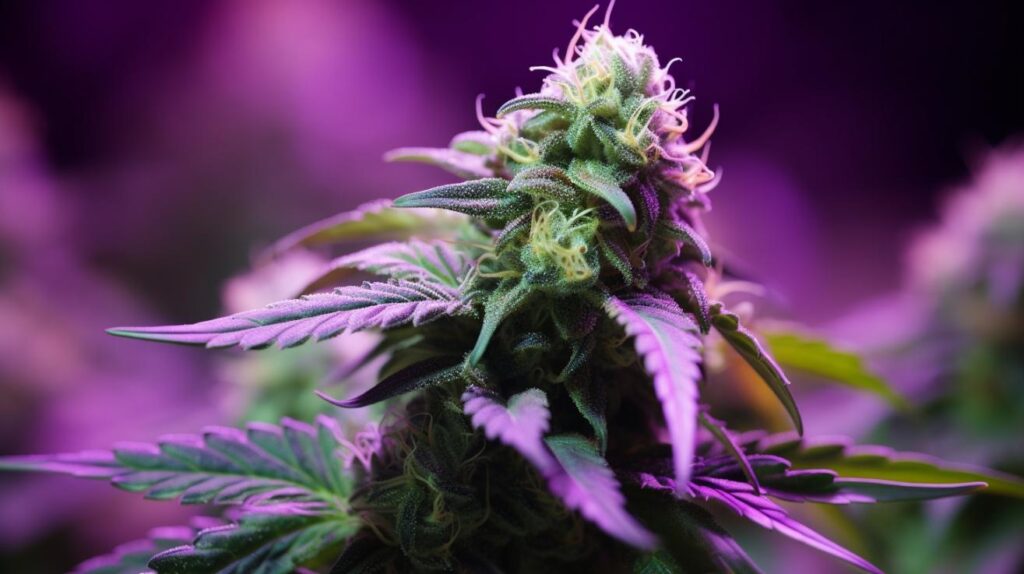
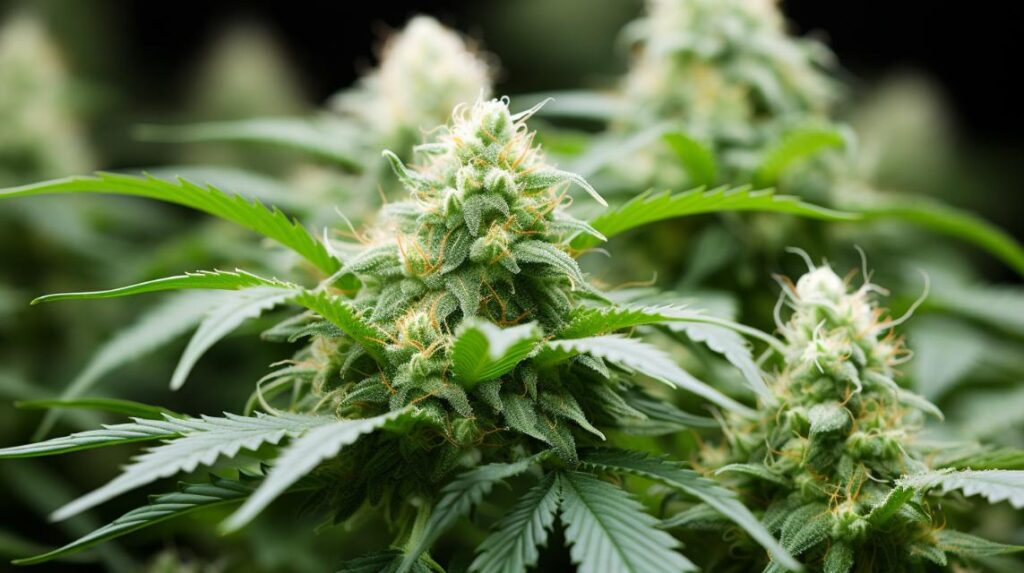
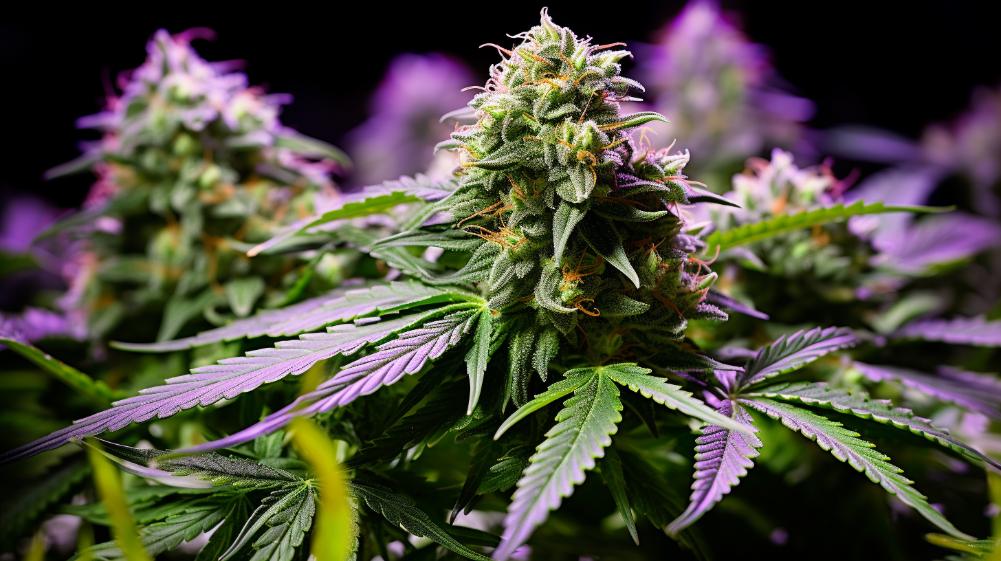
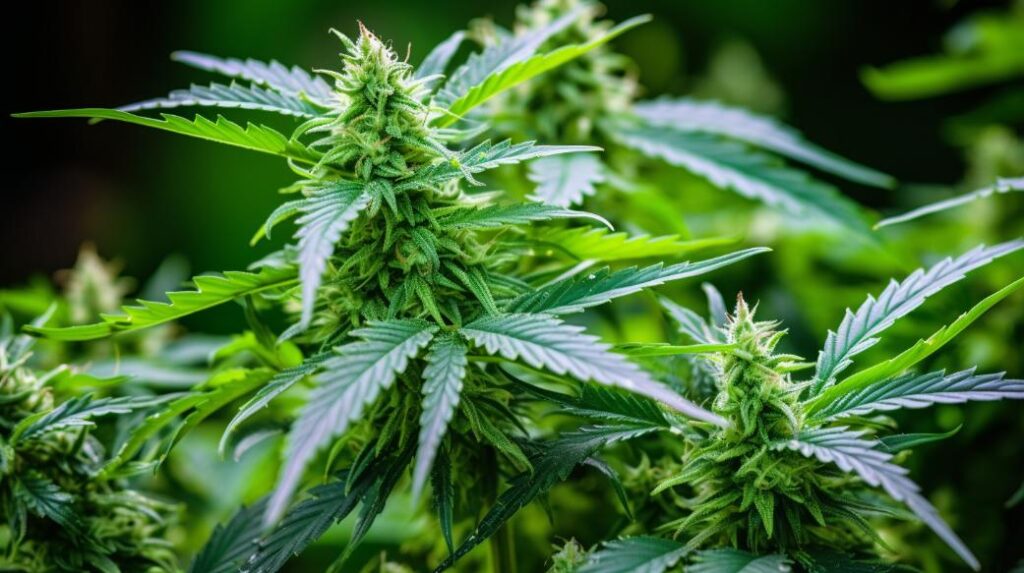
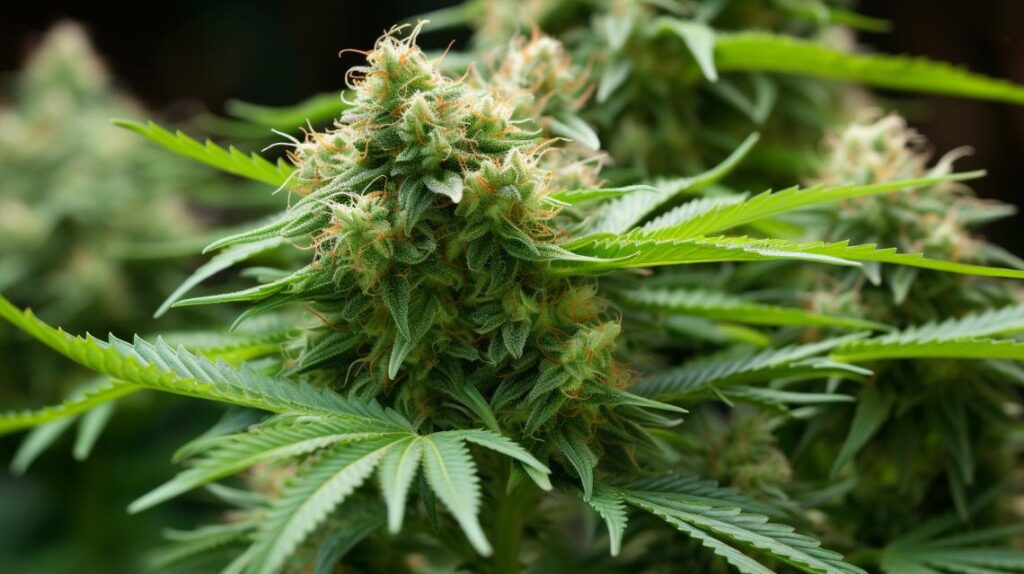

Responses